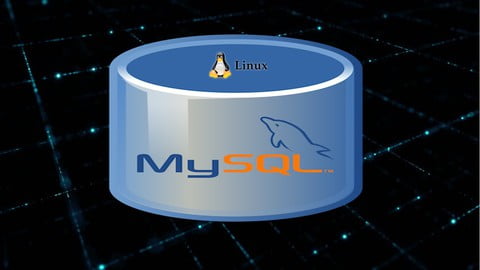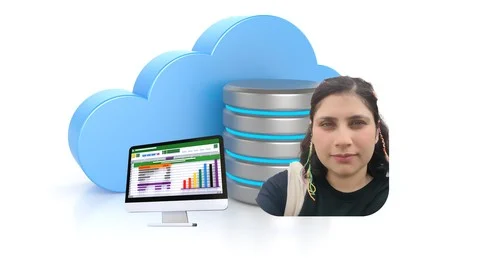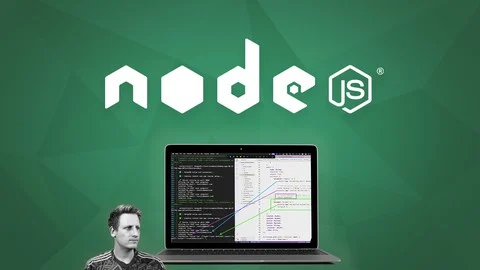What you’ll learn
-
You will be able to apply for SQL developer, Database administrator, Business Analyst, and Business Intelligence job opportunities
-
You will learn 150+ SQL queries
-
Administration of SQL database through Linux Operating System
-
You will manage SQL servers in a corporate environment
-
Troubleshoot everyday SQL database related issues
-
Know how to answer specific business questions by using SQL’s aggregate functions
Here is the course outline:
Course Syllabus
Section 1:
- Introduction to Database
- RDBMS
- What is SQL?
- Top 5 RDBMS
- Introduction to MySQL Server
- Different editions of MySQL
Section 2:
- MySQL Server pre-requisite
- Lab design
- What is virtualization?
- Download and Install VMWare Workstation Player
- Optional – Download and Install Oracle VirtualBox
- Create a Virtual Machine
- Download and Install Linux Server
- Virtual Machine Management
Section 3:
- Important things to remember in Linux
- Linux navigation commands
- What is root?
- Directory listing attributes
- Linux command syntax
- Creating files and directories and its permissions
- Changing password
- Help commands
- Adding text to files
- Pipes (|)
- File maintenance commands
- File display commands
- Linux file editor
- User account management and sudo access
- Process monitor commands
- Crontab
- Linux network files and commands
- Secure copy (SCP)
- System updates and repos (rpm and yum).
Section 4:
- Forks of MySQL and Cloud Computing
- MySQL installation
- Download, Install and Configure MySQL
- Install MySQL Workbench
- Download and restore sample Sakila DB
- Quiz
Section 5:
- What is Data and Database and RDBMS?
- How is data stored?
- How is data saved in MySQL (Linux)
- MySQL Storage engine and Types
- What is a Table, COLUMN and ROW ?
- What is a Key?
- What is Primary Key, Foreign Key, Unique Key etc.
- What is a Transaction and ACID properties?
- Database Normalization AND its different forms
- Create your first Database, Table and Populate table with data
- Quiz
Section 6:
- SQL Statement and Types
- DML Statement with examples
- DDL Statements with examples
- DCL Statements with examples
- TCL Statements with examples
- Quiz
Section 7:
- Create TABLE(s) and Temp Table(s)
- SELECT Statement in detail
- Operators, Expressions and Conditions
- WHERE Clause, ORDER BY, HAVING BY, GROUP BY Clause
- Select from two tables – JOINS and different Types of JOINS
- What is a Sub Query?
- INSERT, UPDATE, and DELETE statements
- Load data from a CSV file to MySQL and vice versa
- Stored procedure
- What is view, function, trigger and index
- Clustered, non-clustered Indexes and Index Design considerations
- INDEX Cardinality, Table Fragmentation, USE INDEX, FORCE INDEX and LAB
- Quiz
Section 8:
- MySQL Architecture Overview
- MySQL Programs and invocation
- Specifying Program Options and Option Files
- How to edit the configuration file (.cnf)
- Options scope
- What options are in affect?
- Quiz
Section 9:
- MySQL Backups, why we need backup, RTO and RPO
- Type of Backups in MySQL, offsite storage, encryption and restore testing
- Binary logs
- The mysqldump utility
- Restore of database using mysql and Workbench
- Table level Backup and Restore
- Point In Time Recovery in MySQL
- XtraBackup Utility by Percona, Functionality and Installation
- Full Backup and Restore using Percona XtraBackup
- Lab for mysqldump and Backups using MySQL Workbench
- Incremental Backup and Restore using Percona XtraBackup
- Schedule backups (cronjobs)
- Quiz
Section 10:
- Understanding MySQL Security
- Root User in MySQL
- CREATE USER and ALTER USER Statement
- Create New User (MySQL Workbench)
- MySQL Privileges , Privileges Control and Some important Privileges in MySQL
- GRANT Statement , WITH GRANT Option and Granting Privileges to MySQL User
- GRANT Tables and Checking Privileges
- REVOKE Statement and Revoking Privileges
- DROP USER Statement
- Roles in MySQL
- Quiz
Section 11:
- MySQL Server Performance Monitoring Basics
- The General Query Log
- The Slow Query Log
- The Error Log
- Optimizing configuration for MySQL performance
- DB Engine Status
- Query Optimization TIPS, EXPLAIN Statement and Execution Plans
- Query Optimization Demo
- Quiz
Section 12:
- MySQL Replication and its Advantages
- MySQL Replication Methods
- Synchronization Types
- Replication Formats
- MySQL Replication Setup Demo
- Quiz
Who this course is for:
- Anyone who wants to start a career in SQL database administration
- Anyone who wants to have complete SQL database training to get a job in IT
- Anyone who wants to advance his/her career
- Anyone who wants to master the SQL command line skills
- College students
- IT professionals, teachers and instructors








